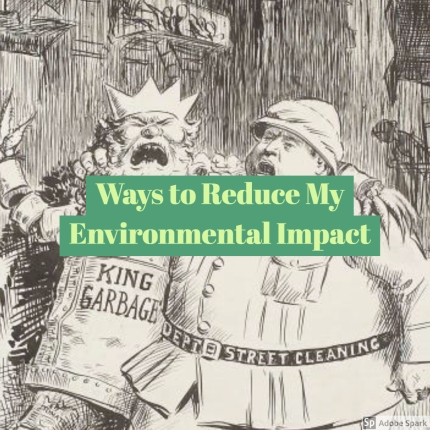
I lived with a couple a few years ago, renting a room from them, and our only common spaces were the bathroom and the kitchen. Living with people is not new to me, but I did notice certain behaviors that I couldn’t and didn’t appreciate until now. For instance, they only used organic cleaning products in the bathroom. They had a wood drying rack in the kitchen that they would repair if it broke (frequently). They would shop at farmer’s markets. They would take my plastic yogurt cups from the trash and put them in the recycling. The latter activity was the most noticeable to me because it meant that they were touching my garbage! How strange! But as always, hindsight is 2020.
I recently read Garbage Land by Elizabeth Royte, published in 2005, it follows her journey tracking her trash from Brooklyn to the landfills and recycling centers in the surrounding area (and beyond). It really opened my eyes to my behavior toward garbage and my general laziness when it came to recycling. The building I now live in, sans aforementioned married couple, has a recycling program that I participate in, but I was still throwing away the yogurt cups instead of recycling. As I was reading Garbage Land it became immediately obvious to me that I wasn’t doing enough to divert recycling from the landfill and to a recycling center. As the book outlines, once it’s in the street the garbage is essentially out of my hands, but as a consumer, I can be more aware of the impact my garbage is having.
If you look at the situation through the lens of the macro impact an individual’s garbage might have on the environment, it is minuscule. Companies make up the majority of problematic activity related to pollution and climate change. Now more than ever, and especially since 2005, the world’s response to climate change is important. Seeing as Trump and most of the GOP don’t believe in climate change, this is a huge problem to have at this time. Convenient for them that they’ll be dead by the time the worst of it rolls around.
On that note, I’m trying to change my consumer habits to be more environmentally sound by doing things like:
- More aware of my garbage habits, purposefully recycling more (especially take out for lunches);
- Bringing utensils and an extra mug with me to work, rather than using plastic or one-use items;
- Bringing my lunches to work—see above(good for my budget, too);
- Avoid straws (a popular reprise this year);
- Re-use plastic one-use water bottles before recycling, avoiding these types of bottles if possible;
- Asking about recycling programs for awkward things (like printer ink or smoke detectors) at work or local stores;
- Since I order items online, I have to be more aware of how often I order and what the items are packaged with, and choosing an eco-friendly option if possible (e.g. paper vs plastic filler);
- SLOWLY replacing plastic home goods with biodegradable options (like Bees Wrap, toothbrushes, and cleaning products)
- Re-gifting during the holidays to save money and also recycle gift bags.
It’s not zero waste, quite yet, but I’m open to suggestions for improving!

2 thoughts on “Ways to Reduce My Environmental Impact”